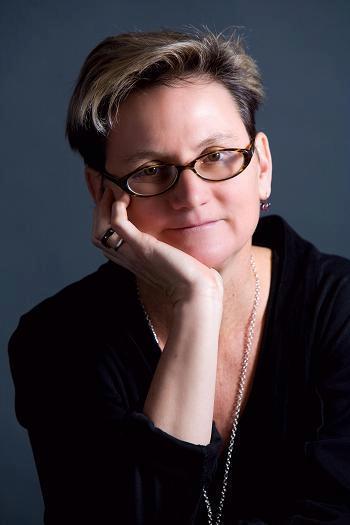
PROVIDENCE – Aiming to expand its reach into biomedical research and connect with clinicians, scientists and businesses in the state’s capital city, the University of Rhode Island has recruited a prominent vaccine researcher and built her a new lab in the Shepard Building downtown.
Dr. Anne S. “Annie” De Groot, a longtime Brown University faculty member and the co-founder and CEO of Providence-based biopharmaceutical company EpiVax Inc., will lead the new Institute for Immunology and Informatics. Its goal is to use cutting-edge “bioinformatics” tools – sophisticated computer modeling – to develop vaccines against diseases identified as “neglected” by the research community, URI said.
“Tropical diseases like malaria, tuberculosis and dengue fever are a huge problem in the developing world,” De Groot said in a news release.
“We have developed technical solutions to developing vaccines for these diseases,” she noted. “We’ll work on some of the vaccines at our new URI lab, while also providing access to the technology to the global research community working on vaccine development for emerging infectious diseases.”
For URI, which has worked hard to become a biotechnology powerhouse in recent years, adding De Groot to the faculty is more than a prestigious recruitment.
Jeffrey Seemann, dean of the URI College of the Environment and Life Sciences and the driving force behind the university’s biotech initiative, said the new institute is a “critically important opportunity” for URI to connect with a flourishing biomedical sector in Providence.
“No. 1, the University of Rhode Island is getting an absolutely world-class scientist,” Seemann said in an interview. “There are few more creative, energetic, brilliant forces in science than people like Annie, and we’re just lucky that she wanted to grab this opportunity.”
Moreover, he said, URI “really needs to be in the biomedical space,” and having a research presence in Providence brings the university closer to Brown and Lifespan, making it easier to collaborate and build on one another’s efforts.
“As I see it, it’s just the beginning of what the University of Rhode Island can and should be doing in Providence and in the life sciences, biomedical space,” Seeman said. Noting that Brown University and others already are working to transform the Jewelry District into the “knowledge district” of the city – siting Brown’s new medical school and labs from multiple organizations in the same neighborhood – he added that “it’s critical that URI be a part of this.”
De Groot will run the Institute for Immunology and Informatics together with long-time associate Leonard Moise, director of vaccine research at EpiVax; URI professors Thomas Mather, a vector-borne disease researcher, and Marta Gomez-Chiarri, a fisheries researcher who has been developing vaccines for fish; and De Groot’s father, Leslie De Groot, an internationally recognized endocrinology researcher. Greg Paquette, URI’s director of biotechnology programs, will also be active at the new institute.
De Groot will hold an appointment as a professor in the URI Department of Cell and Molecular Biology. She will teach graduate and undergraduate classes in the design of vaccine and protein therapeutics, while Moise teaches protein production courses.
De Groot – whose work has attracted more than $15 million in federal and foundation research funds over the past 14 years, including a $600,000 grant last summer from the National Institute of Diabetes and Digestive and Kidney Diseases (NIDDK), a division of the National Institutes of Health (READ MORE) – said she expects to be able to attract millions of dollars’ worth of funding to URI to support the lab. And she added that the dean’s support in pursuing a major grant helped reinforce her sense that the university is the right place for her.
Even if URI’s stature in biomedicine doesn’t match Brown’s at this time, De Groot said, URI has many “top-notch” researchers who she expects will rise in prominence through this initiative – and Seemann’s vision eclipses anything she’s seen at Brown.
“He gets it. He understands the entrepreneurial drive of researchers like me who want to develop technologies that will improve human health,” she said. “I’m not going to be the only one who moves here. People from out of state are going to move here. People from in state are going to move here. It’s really about leadership.”
But even though she has moved to URI, De Groot said she is not completely severing her connection with Brown: To continue her clinical work, she will maintain a faculty appointment in pediatric infectious diseases at the medical school.
She also expects to continue her work at EpiVax, which she co-founded in 1998 with fellow researcher Bill Martin, using funds from the Slater Biotechnology Fund. The company has grown dramatically over the past decade, developing a sophisticated vaccine design tool called EpiMatrix that rapidly scans sequences of proteins for peptide candidates that are highly likely to be useful in the development of vaccines, greatly speeding up the process.
Besides EpiVax, De Groot is also a founder of the Global Alliance to Immunize against AIDS (GAIA) Vaccine Foundation, which works to improve access to HIV/AIDS care and supports efforts to develop a vaccine. And she is active locally with the Hope Clinic, a free primary-care clinic under development in the Valley section of Providence.
The University of Rhode Island’s new Institute for Immunology and Informatics, at the university’s Feinstein Providence Campus, is part of the URI College of the Environment and Life Sciences. To learn more, visit www.uri.edu/prov. For additional news and information from URI, visit www.uri.edu/news.
EpiVax Inc. is a biotechnology company that is merging bioinformatics with the latest in vitro immunological research to generate new vaccines for infectious diseases, such as hepatitis, HIV and tuberculosis, and new treatments for cancer and autoimmune diseases. To learn more, visit www.epivax.com.












